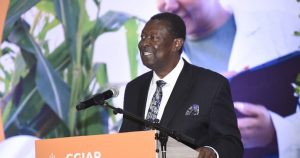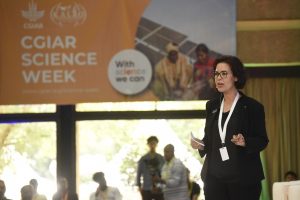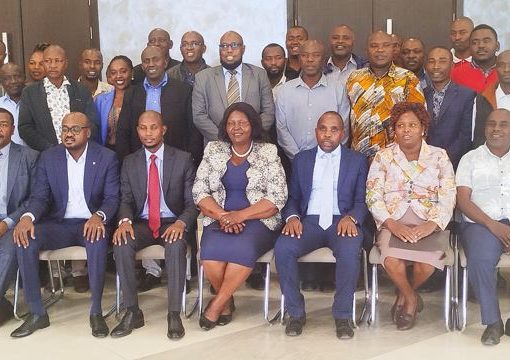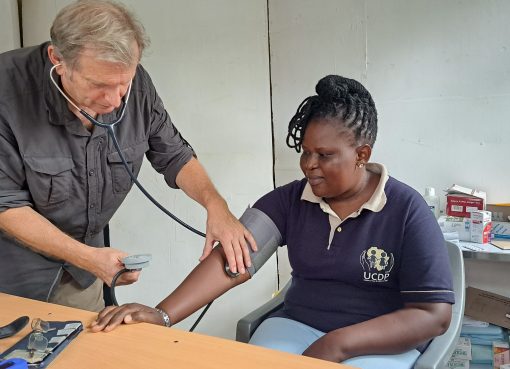The inaugural CGIAR Science week 2025 kicked off in Nairobi on Monday, bringing together leading voices in agricultural science to explore how partnerships can be forged to harness and scale science and innovation that can deliver food and nutritional security and strengthen livelihoods for all.
Science Week underscores the Consultative Group on International Agricultural Research (CGIAR) and its partners’ steadfast commitment to international agricultural research and the critical need for sustained global investment in innovation, technology, and science.
The week-long forum held at the United Nations Office in Gigiri from April 7-12 aims to showcase groundbreaking research and technological advancements in agriculture, climate adaptation, and food security.
Over 8,000 delegates comprising global dignitaries and decision-makers, science experts, funders, and farming community members will explore how to effectively scale science and innovation to boost agricultural growth and catalyze economic transformation across Africa.
Prime Cabinet Secretary of Kenya Musalia Mudavadi, who was the guest during the opening ceremony, said CGIAR Science Week, co-hosted by the Kenya Agricultural and Livestock Research Organization (KALRO) serves as a platform for stakeholders to investigate new investment pathways that accelerate agricultural research in the face of mounting global agricultural challenges.

“Considering the unprecedented environmental and food security challenges that the world faces today. The only way forward is through science-driven solutions and multi-stakeholder partnerships.” He said.
Mudavadi divulged that agriculture is the backbone of Kenya’s economy, providing over 60 percent of employment in Kenya. Yet the sector faces a perfect storm of challenges in climate change, loss of biodiversity, and rapid population growth.
“The only way forward lies in science-driven solutions generated through robust partnerships among stakeholders,” he said, adding that through collaboration with CGIAR, Kenya has significantly enhanced its research capacity.
He said Kenya is fully committed to supporting agricultural research and innovation and that the government’s Bottom-Up Economic Transformation Agenda prioritizes the agri-food system as a key pillar of economic transformation.
“We believe that transforming this sector will drive poverty reduction and job creation, improved livelihoods and food security, gender equality and inclusion, and climate change adaptation and environmental sustainability,” he said.
Principal Secretary State Department for Livestock Development in Kenya, Jonathan Mueke, said the partnership between CGIAR and our national institutions, particularly KALRO, continues to bear fruit in research, capacity building, and the dissemination of innovations that uplift our farmers and communities.
“CGIAR has been a longstanding and strategic partner in agricultural development and innovation—not only here in Kenya but across the African continent,” he said.

Executive Managing Director, CGIAR Ismahane Elouafi said Science Week builds on CGIAR’s 50-year legacy of driving impact through partnerships that develop and scale innovations to tackle the most pressing agricultural challenges facing our planet’s food, land, and water systems.
“CGIAR is unwavering in our commitment to advancing groundbreaking agricultural science that is sustainable, inclusive, and rooted in the belief that research, innovation, and collaboration are the keys to overcoming the complex challenges facing agri-food systems today,” she said.
On her part, UN Nairobi Office Director General Zainab Hawa said the forum will be emphasizing on the transformative power of research, innovation, technology, science, and partnerships in reimagining and shaping a brighter future for all.
“Science week will present unique opportunities to share knowledge to advance and develop the role that agriculture plays in solving some of the world’s most pressing challenges,” she said.
At a special panel, the Opening Ceremony provided an opportunity for other global leaders and science experts to share knowledge and insights, alongside farmer community members who offered inside knowledge from the frontline of agricultural challenges.
Former Prime Minister of Mauritius Ameenah Gurib-Fakim said when looking at the science to address challenges facing Africa, it is essential to do this through the gender lens to ensure innovations are equitable and inclusive.
“Women feed Africa as they make up a high proportion of smallholder farmers. Yet where are the technology and tools that empower women and girls?” said Gurib-Fakim.
“Science Week is about drawing on deep wells of experience. Delegates have led science institutions and navigated farming through complex and changing challenges. Their insights are invaluable as we work to transform agri-food systems towards resilience,” said Lindiwe Sibanda, Chair of the CGIAR Integrated Partnership Board and moderator for the Council of the Wise panel.
Former Prime Minister of Niger Ibrahim Mayaki said we have made considerable progress over the last decades in science and productivity, but demographic pressures have eroded the gains.
“We need to do more with less, combining political solutions with scientific solutions,” said Mayaki who is also African Union Special Envoy for Food Systems.
Throughout the forum, the role of partnerships will be strongly emphasized, recognizing the vital importance of collaboration to tackle today’s complex agricultural challenges in an increasingly challenging funding landscape.
By Anita Omwenga





